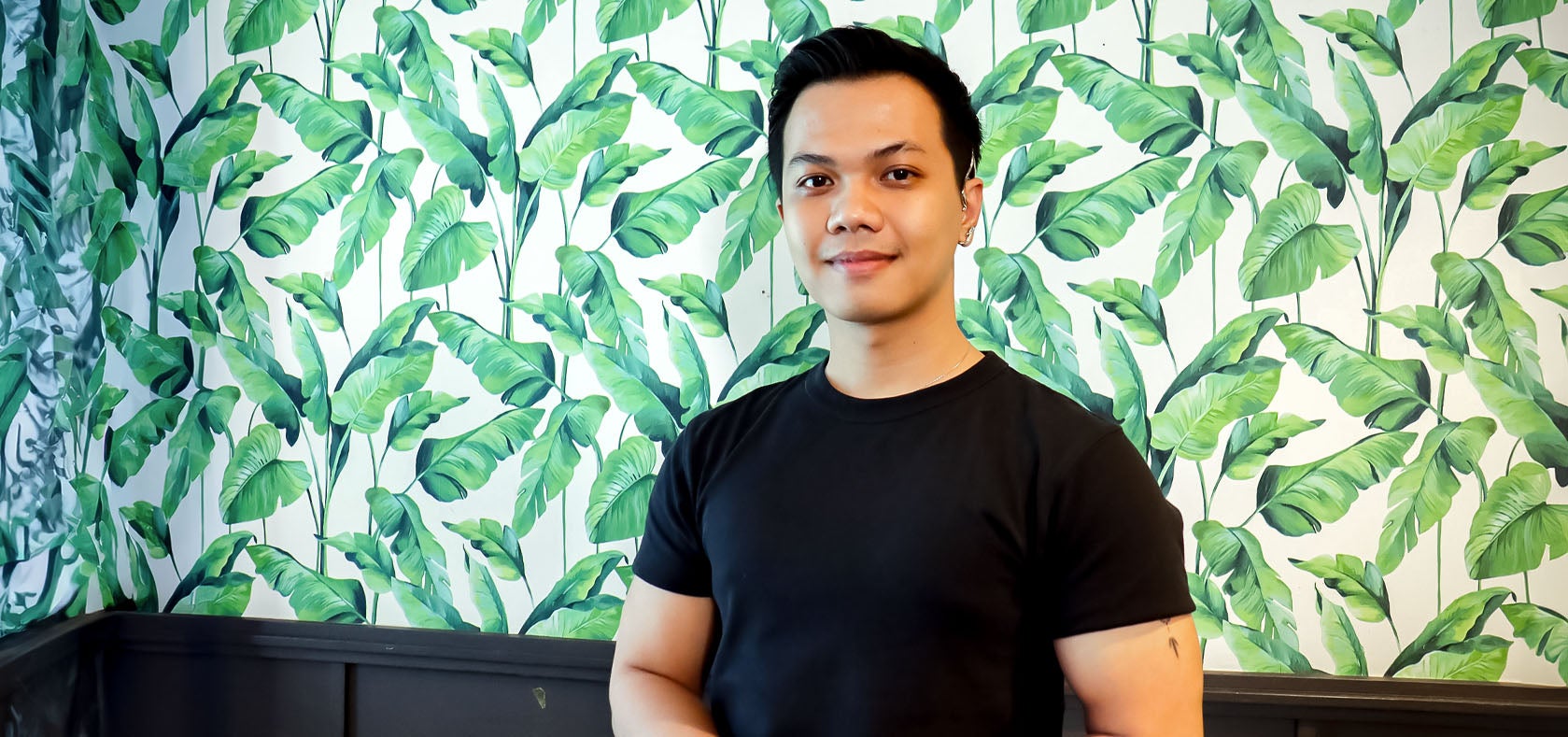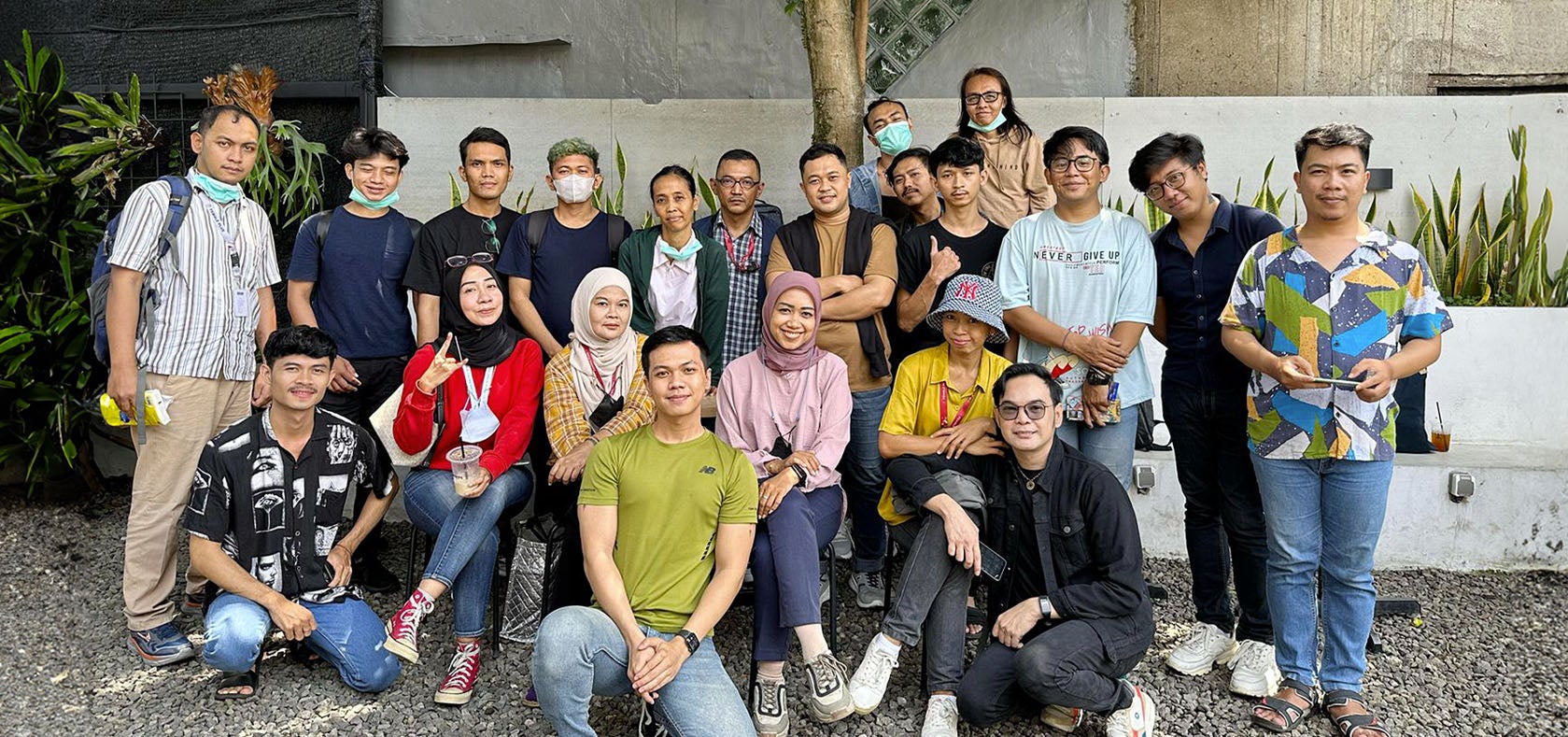In the Words of Arisdo Gonzalez: “Ignoring the experiences of LGBTIQ+ friends can weaken the effectiveness of peace efforts”
Date:
Interviewers: Bintang Aulia and Yoomi Jun

Arisdo Gonzalez, 26, is an activist for the rights of lesbian, gay, bisexual, transgender, intersex queer (LGBTIQ+[1]) people in in Bogor, Indonesia who works at two non-governmental organizations, Pelangi Nusantara and Pesona Bumi Pasundan Foundation. Gonzalez raises awareness on diversity and health through social media and advocacy. Gonzalez participated in a dialogue, Collaborating with ASEAN for the Regional Action Plan on Women, Peace and Security, in Jakarta, Indonesia on 24-25 April 2024. UN Women and the Global Network of Women Peacebuilders organized the dialogue under a project funded by the Governments of Canada, Republic of Korea, and United Kingdom.
“After speaking with Mother Mayora[2], I felt LGBTIQ+ friends can act as agents of change in advocating for their rights and their recognition in peace and security efforts. She also demonstrates the importance of having trans woman in leadership roles to help take care of the LGBTIQ+ community. You can also increase public understanding of LGBTIQ+ and other issues related to women, peace and security and encourage positive changes in policy and practice.
To ensure inclusivity and protect LGBTIQ+ people from violence, there must be recognition for their representation and participation as equal contributors to peace and security.Their inclusion in the discussion and implementation of the women, peace and security agenda is crucial to ensure their needs, perspectives and rights are accommodated in and after conflicts. Ignoring the experiences of LGBTIQ+ individuals can weaken the effectiveness of peace efforts.
Disagreement and uneven commitments regarding LGBTIQ+ within the region may hinder efforts to address discrimination and promote LGBTIQ+ people’s human rights and contribute to social stigmatization and discrimination. Without clear agreement or recognition of LGBTIQ+ people, it’s difficult to legally protect them, especially against discrimination based on sexual orientation or gender identity.
What queer people experience in conflict situations can be different from the experiences of other groups. Queer friends' experiences of fragility are different from (those of) cisgender-heterosexual friends. Therefore, the women, peace and security agenda needs to look at other perspectives.

One of the challenges the LGBTIQ+ community experienced during conflict or crisis was during the COVID-19 pandemic, especially for transgender people. Many lost their jobs and had minimal access to assistance. I vividly remember that when that happened, it was grass-roots LGBTIQ+ organizations like Srikandi Pakuan Bogor that mobilized and fought together to help those who were vulnerable and in need. They collected donations and bought groceries that can be shared, and also advocated for health services so transgender friends could get COVID-19 vaccinations because many did not have identity cards.
Those who are vulnerable embrace their vulnerable neighbors; we are not just victims of conflict or crisis but agents of change who create peace in the community for a better world.”
- UN Women uses both ‘LGBTIQ+’ and ‘diverse SOGIESC’ where appropriate in global contexts, while respecting their distinctions. We note that neither term is universally applicable nor reflects the full diversity of sexual and gender formations, practices and identities that exist, that terms and their usage are constantly evolving, and that SOGIESC applies to all people. In practice, various culturally, linguistically and context specific terms may be used, where appropriate.
- Hendrika Mayora, also called as Bunda Mayora or Mother Mayora, is the first transgender woman to ever be selected as a public official in Habi Village, East Nusa Tenggara as Deputy of Village Consultative Council (Badan Permusyawaratan Desa)